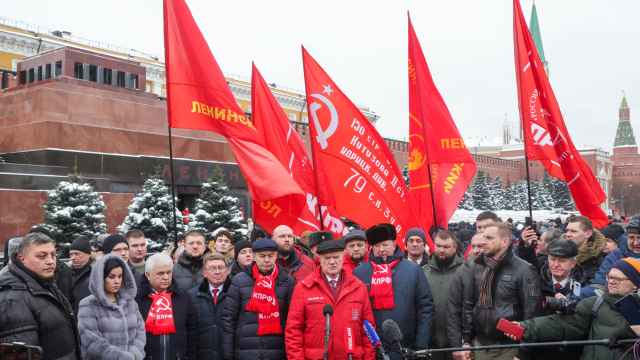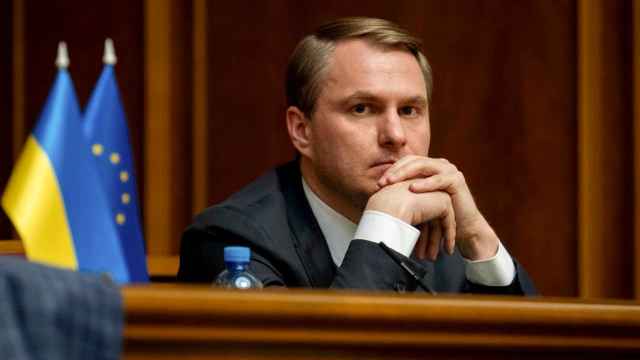HIV patients in the Moscow region have complained about a shortage of medicine, the Kommersant newspaper reported Friday.
According to patients registered with the Moscow Region Center for the Prevention and Control of AIDS, even children and pregnant women have been refused necessary treatment.
One patient told Kommersant that in the past two months, she has been forced to purchase half of the drugs she needs out of pocket. Her daughter was also given an inexpensive Russian analogue drug to replace the foreign drug she took previously.
Another patient said her child hadn't received medicines for two months and she had to buy all the medicine herself.
Some people gave up taking the medicines completely because of the shortages, one of the patients told the newspaper.
Temporary termination of the treatment may have no consequences, but it is not advisable, Vadim Pokrovsky, head of the Moscow-based Federal Center for Fighting AIDS told The Moscow Times Friday.
Pokrovsky attributes the shortages to changes in the procurement of medication that were implemented several years ago.
In 85 Russian regions, medicines are purchased through auctions. In order to cover the treatment of more people, the Health Ministry sets very low prices.
No company wants to sell products at such prices and this leads to disruptions, Pokrovsky said.
For the same reason, the more expensive HIV drugs have been replaced by cheaper versions, which some patients claim to be ineffective and have undesirable side effects.
Last year, the number of HIV positive patients registered in Russia reached one million with 93,000 new cases — the highest level in history. However, the experts estimate that the real number of HIV-positive people in Russia may be closer to 1.5 million.
The Russian Health Ministry warned that the HIV epidemic may be out of control by 2020 if treatment is not expanded. To fight the growing epidemic, Russia moved to allocate an additional $300 million from the federal budget for this year.
Still, only one quarter of the HIV patients were receiving state-funded medicines as of the beginning of the year, Pokrovsky said.
Only an increase in funding and further measures aimed at reducing the cost of treatment of one patient can improve the situation, he said. The problem is that Russian budget is currently strained due to the falling oil prices and Western sanctions.
Meanwhile, a report by the Kremlin-backed Russian Institute for Strategic Research, released last May, said the current HIV epidemic in Russia is the result of widespread condom use and a lack of adherence to traditional values.
Durex condoms, which comprise a quarter of the country's condom sales, were banned in Russia last week on the basis of improper business registration.
Meanwhile, the pace of epidemic in Russia is not slowing down.
This year 100,000 more new cases are expected, Pokrovsky said.
A Message from The Moscow Times:
Dear readers,
We are facing unprecedented challenges. Russia's Prosecutor General's Office has designated The Moscow Times as an "undesirable" organization, criminalizing our work and putting our staff at risk of prosecution. This follows our earlier unjust labeling as a "foreign agent."
These actions are direct attempts to silence independent journalism in Russia. The authorities claim our work "discredits the decisions of the Russian leadership." We see things differently: we strive to provide accurate, unbiased reporting on Russia.
We, the journalists of The Moscow Times, refuse to be silenced. But to continue our work, we need your help.
Your support, no matter how small, makes a world of difference. If you can, please support us monthly starting from just $2. It's quick to set up, and every contribution makes a significant impact.
By supporting The Moscow Times, you're defending open, independent journalism in the face of repression. Thank you for standing with us.
Remind me later.






